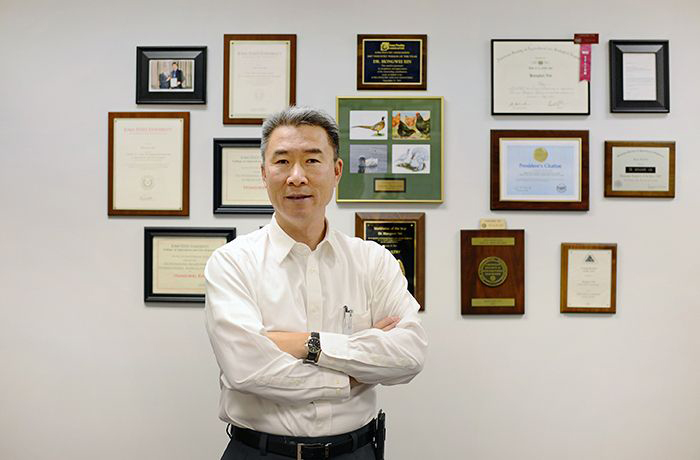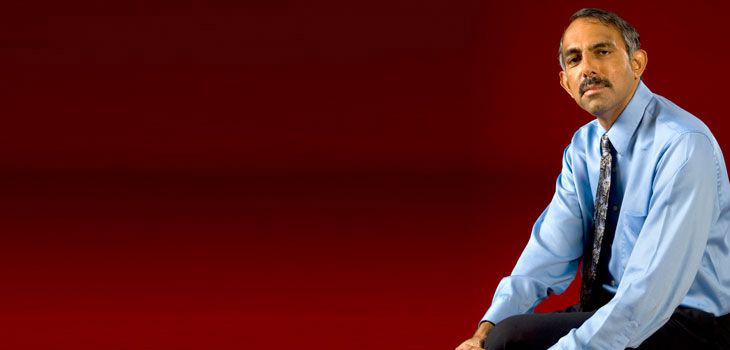For the U.S. to maintain its status as global leader in science and technology, we must continue to welcome international students, scholars, and researchers.
It is to our nation’s great benefit that the world’s best and brightest study at our universities. The flow of international students and faculty to the U.S. brings together people of different cultures, experiences, and expertise. What they all have in common, however, is an intense commitment to studying and solving problems, creating innovative solutions to national challenges. Their work in classrooms, laboratories, and in hospitals has long contributed to America’s economic competitiveness, security, public health, and well-being.
AAU universities are proud to employ some of the world’s most talented faculty, doctors, postdoctoral fellows, and research scientists who educate and train students, perform groundbreaking research, and prepare students to enter a workforce in which global engagement is a necessity. For the U.S. to continue reaping the benefits of international talent, federal policymakers must work to maintain the exchange of people and ideas across international boundaries. Doing so is critical for the longevity and continued success of our unique 70-plus year partnership between the federal government and our research universities.
An innovator in agricultural science, Iowa State University’s Dr. Hongwei Xin has dedicated his life to applying science to egg production, increasing efficiencies in operations, and making farmers’ lives a little easier. Xin is distinguished professor of agricultural and biosystems engineering, director of the Egg Industry Center at Iowa State, and assistant dean for research in the University’s College of Agriculture and Life Sciences.

As a young boy living on his family’s farm in China, he recalls that meat and eggs were a luxury reserved for festivals, holidays, or birthdays. This scarcity helped drive his motivation for bringing science and technology to farmers. As domestic and international demand for eggs continues to increase, Dr. Xin and his team work to ensure U.S. farms can keep up with demand and I think that’s eggcellent!
Hundreds of miles away in Atlanta, Georgia, Emory University’s Dr. K.M. Venkat Narayan is working to prevent type 2 diabetes, a disease that affects nearly 30 million Americans, including roughly 8 million who are undiagnosed. In fact, the Centers for Disease Control and Prevention estimates that by 2050, as many as 1 in 3 U.S. adults could have diabetes by 2050. A costly disease, diabetes accounts for more than 20 percent of all health care spending in the U.S. Dr. Narayan and his team are working to improve prevention and treatment for those affected.
In the 1990s, Dr. Narayan was already a tenured faculty member in Scotland. Had it not been for the invitation to collaborate from a National Institutes of Health epidemiologist and diabetes researcher, Dr. Narayan may not have come to the U.S. Drawn by our nation’s unique government-university partnership and the unparalleled collaborative environment for scientific research, the “doctor interested in everything” chose to stay here and contribute his talents. His work on behalf of the American people continues today at Emory and we are grateful for his dedication.

The work of these brilliant scholars is but a tiny snapshot of the research conducted at AAU universities. Collectively, AAU universities educate and employ more than 300,000 international students and nearly 75,000 faculty members from other countries. These talented students and scholars expose American students and faculty to ideas and perspectives important not just to academic endeavors but also to business, international trade, and global relations. Those who return to their home countries have also gained an understanding of and appreciation for American culture and values.
This exchange is a good thing, a very good thing. Losing innovators like Dr. Narayan and Dr. Xin to competitor nations would be detrimental to our higher education system, economic competitiveness, public health, and standing as global innovation leader. It is critical that U.S. lawmakers enact policies that continue to attract and embrace the best and brightest from around the world. The long-term viability of our unique government-university research partnership and its future contributions to our nation’s prosperity and security depend on it.